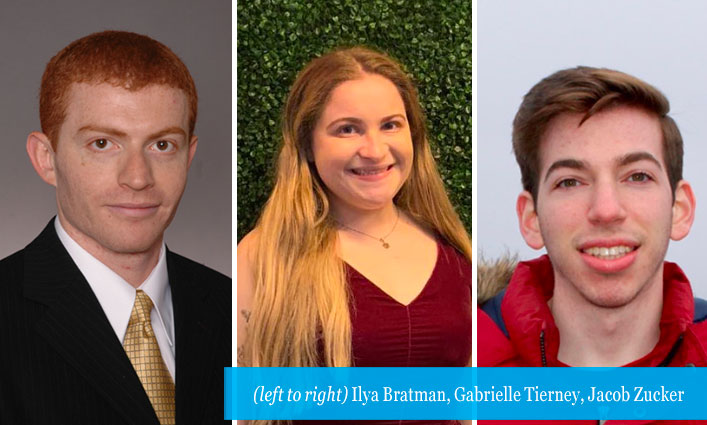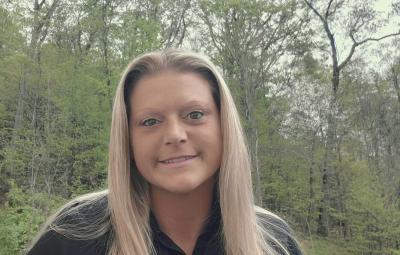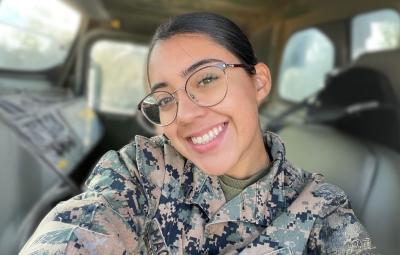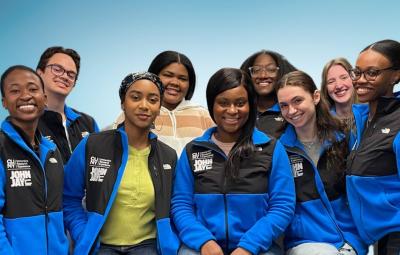
In honor of Jewish American Heritage Month, Hillel members gathered for a roundtable to reflect on their culture, religion, identity, and history. Here, they share their perspectives and experiences.
What does it mean to you to be Jewish?
Gabrielle Tierney: For me, being Jewish is not just a religion; it’s also a culture. There are different types of Jews from the diaspora all over the world—Ashkenazi Jews, Sephardic Jews, and Bukharan Jews. They could have traditions coming from so many different places, be it Eastern Europe, Central Europe, the Middle East, or South Asia—but no matter what, they’re all Jewish.
Jacob Zucker: Being Jewish is great because there is a lot of togetherness. As a Jewish individual, I think it is important to fight anti-Semitism. Even though the Jewish community is very small at John Jay, it’s essential that Jewish students feel safe and supported on campus. As a criminal justice college, we must be a model campus for diversity and that includes Jewish students.
Ilya Bratman: Jewish people are committed to building community and supporting each other. There’s a saying in Judaism that everyone is responsible for each other. We feel that each person is part of a whole, and each person then has responsibilities for each other to be united to serve God and serve each other.
“When I transferred to John Jay and found Hillel, it felt like I was coming home. I found my tribe.” —Gabrielle Tierney ’23
What makes you proud of being Jewish?
JZ: Togetherness and family. In my family, we like to celebrate Shabbat every Friday and Saturday. On Friday, we light the candles together. We cut the challah, drink the wine, and have dinner together. Then on Saturday, we go to the synagogue together.
GT: My experience of being Jewish comes from being the daughter of an interfaith couple. My mom is Jewish and my dad is Catholic. It was hard growing up because I wasn’t accepted by either group. When I transferred to John Jay and found Hillel, it felt like I was coming home. I found my tribe. Everyone is different—some more religious than others—but we’re all part of the tribe. I’m proud of that unity.
IB: I'm proud of our tradition of learning and giving back. Jewish people have been called “the people of the book” because we’ve been proudly reading the same book for over 3,300 years. It’s an unbroken chain of learning. Service is embedded in the laws of Judaism. At John Jay you see this on campus. Look at the Lynn and Jules Kroll Atrium and the Anya and Andrew Shiva Art Gallery. These folks didn’t go to John Jay, but they feel very strongly about supporting education. There’s a big culture of giving and philanthropy within the Jewish community.
“Jewish people have been called ‘the people of the book’ because we’ve been proudly reading the same book for over 3,300 years. It’s an unbroken chain of learning.” —Ilya Bratman
What do you enjoy about being in Hillel?
JZ: I’ve really enjoyed Shabbaton. Basically, Jewish students from the eight CUNY Hillel campuses come together for a weekend, celebrating Shabbat together. There’s lots of food, singing, and talks. I like hearing about all the different backgrounds people have in Judaism. It’s really interesting to learn about their families, majors, and career fields. It all goes back to togetherness.
GT: Since Hillel has eight campuses, there are a lot of people you can learn from. We have an Israeli student in the group and he’s shown me so much about the differences between our countries. I’ve learned about the Holocaust from him and other people at John Jay whose families were directly affected.
IB: This summer we are all going to Amsterdam and Israel for two weeks, which is so exciting. It’s all part of this fellowship where they study, travel, and grow as a community. The other Hillel event I’m excited about bringing back next year is Unity Seder. Before the pandemic, it was our biggest event on campus. The idea of Seder and Passover is freedom, exodus, and leaving slavery. All of us have experienced difficult conditions. At Unity Seder, we bring folks together to talk about freedom and justice. It’s extraordinary to have these conversations with really amazing food, entertaining performances, and a diverse group of people.



